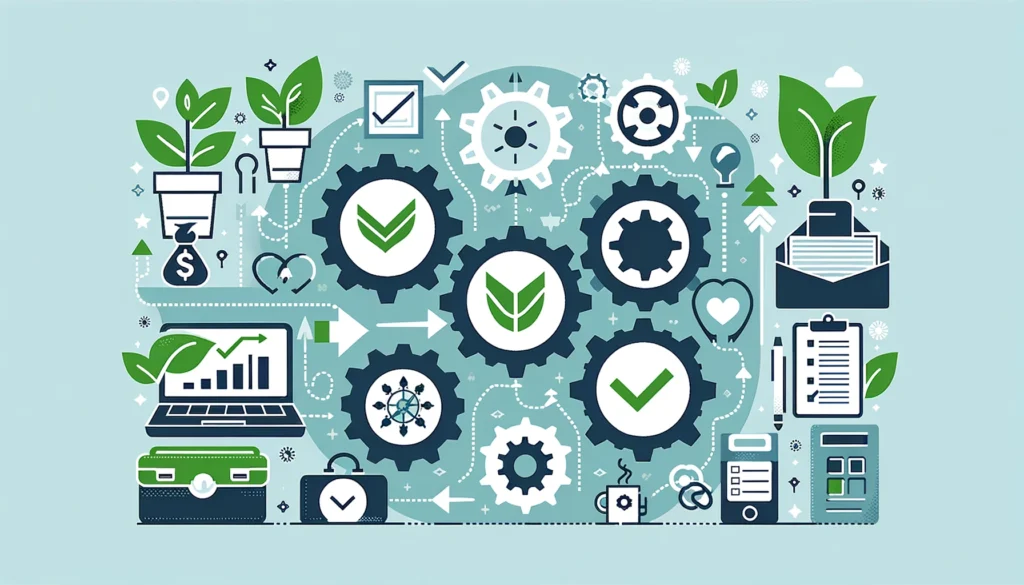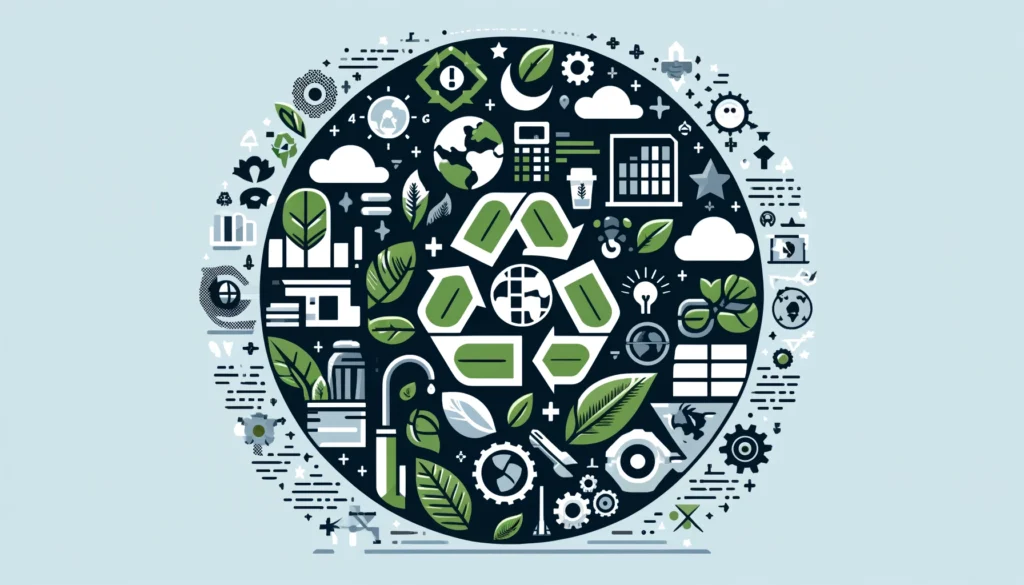Sustainability has risen in priority for many businesses around the globe. Not only is the sustainability of a company important internally, but can often impact the perception of the business as well.
Customers now care not just about the quality of a product, but also what cost that product came at to the environment, with many deciding that employing sustainable business practices are worth more. More than that though, legislation is coming soon that will require businesses in the US, UK, and Canada to report both their own environmental impact and those of their suppliers and producers upstream.
While reports to the Greenhouse Gas Reporting Program are already underway, regulators are looking for ways to better see the impact products and services have on the environment. As a result, more detailed reporting is on the horizon, and unlike past reporting programs, not just big companies will be impacted.
New reporting will include ‘Scope 3’ emissions for retailers which include understanding the environmental impacts of what suppliers are doing to make the goods they use or sell, and all the transportation to their facility.
With all of this in mind, it does not matter if your business is a small service provider or a large warehouse that distributes goods when it comes to sustainability. Eventually, you will have to know how much of an impact your business is having on the environment and be able to show that you are taking steps towards reducing that impact.
Bottom line: Understanding your environmental impact is quickly becoming a critical strategic business reality. If you wait around in the hopes that everything will just work out, chances are you may lose business as the steps you take towards lessening your carbon footprint are now a factor to consider between competitors as well. Consider investing in sustainable business practices soon to stay on top of the changing landscape.
How to Prepare for Sustainable Business Strategies
As the legislation takes effect and businesses are asked both to measure their environmental impact and find ways to reduce it, many will have a flood of questions to answer before they can begin to make progress:
- How do you actually be sustainable?
- Who can you go to for support?
- How can you measure if there is opportunity for improvement?
- Are there any financial benefits or is it all cost?
- How far should you go to be sustainable?
Questions like these will arise all over the world as sustainability transitions from a choice to something businesses are held accountable for, and it can certainly seem overwhelming.
The good news is that it doesn’t have to be overwhelming, and that there are resources that can help businesses understand the changes that are coming and prepare to face them head on. The first option is online research of the legislation, though that can be time consuming and may not always be as clear as it should be.
There are places which are compiling the information and providing summaries such as the Canadian Food Innovation Network, which can serve as great resources. Another alternative is to hire a company who specializes in environmental impact measuring and sustainability practices, and who have been doing so years before these changes were proposed.
Companies such as SanEcoTech, Enviro-Stewards, and CarbonOne can be great resources to help you understand the changes, record your impacts, and implement real solutions that will make a difference.

How Do You Implement Sustainable Business Practices?
Unfortunately, there is no clear answer to this question as it will change for each business. Over the years, many companies have dipped their toes into ideas that could have a positive impact, such as donating to charities with environmental goals or putting some of their profit towards tree planting.
While it is true that these acts are beneficial, they don’t help achieve the intended goal that regulators have in mind, which is for you to to understand your own impact on the environment and to show what concrete steps you are taking to limiting those impacts.
Green-washing, is a term used to describe activities companies use to make themselves ‘look green and sound green, but do nothing to actually attempt to lower the damage to the environment the business creates.
Thousands of companies have rebranded themselves to appear very committed to achieving sustainable business practices, and for many this has worked quite successfully. For many of these companies, they had no idea what else they could do.
Making products does have an environmental impact. After all, we still need food, and need to count on it being safely stored in plastic containers or bags on store shelves. We require heavy machinery burning fuels to extract ore from the earth’s surface to create all the electronics we have come to depend on.
However recent regulator and reporting changes are going to make ‘rebranding’ and unsubstantiated claims of improvements harder to do, and doing so may even get you sued for misleading the public or falsifying claims.
Instead of going that route, the best thing to do is to really commit to understanding what impacts you do have by measuring the energy and resource consumption of the business, and find places to cut down. Whether or not you choose to install heat pumps, try innovative ideas such as a blueroof, alter how your water is stored, or automate your light switches, every improvement can all impact your carbon footprint in small ways, but optimizing every small operation can very quickly come together to have massive impacts.
Another thing to consider when figuring out how to practice sustainability is where your energy comes from and whether investing in alternative energy sources will have that much of an impact. For example, if you have buildings both in Ontario and Nova Scotia, investing in alternative energy sources in Nova Scotia, which uses coal to generate 47% of its energy, will be worth far more than in Ontario, which has fairly clean energy already.
Another big question that does not really have a right or wrong answer is, if your energy is already mostly clean, would it be worth it to invest not in alternative energy sources for your own buildings, but for public buildings such as schools in places of the world that have extremely unclean energy. Not everyone will find this question worth thinking about, but it could lead to large and tangible results in ways that few other methods can achieve.
Thinking About Other Options
While the small options that add up over time are perfectly valid and something that will have a lasting positive impact, there are also cases where a larger change could be opted for. Since changes at a large scale are fairly new in the mainstream, it may be some time before enough people try new solutions and verify that they work, but we cannot achieve this without people willing to brave the unknown and make change.
One option that many people are considering at the moment is trying to move towards a circular economy. While this section will not be covering the concept of a circular economy in depth, it will serve as a good case study in what can be accomplished with more ambitious changes.
A circular economy is a framework where rather than goods traveling in a line from producer down to consumer, there is an effort to close the circle and have goods return back to producers where they can be repurposed or salvaged to make new goods once again.
An interesting example of this is the use of garbage to help feed fish for human consumption. At a first glance this may sound unsanitary and repulsive, but it is actually quite clever. While a fair amount of garbage can be given new life, for a long time, people had great difficulty knowing what to do with the left-over sludge and liquid residue that accumulates in large collections of garbage.
Eventually though, one company discovered that while the sludge could not be repurposed into new products in the typical sense, black soldier flies happen to love the stuff for breeding and laying their eggs. Trout farms require mass amounts of black soldier fly larvae to feed the fish, and the left-over sludge that people considered useless for years just so happened to be the best way to incentivise the flies to reproduce in a controlled location.
This example illustrates that while a circular economy might seem difficult or even impossible at a first glance, sometimes there are connections that you would not even begin to think about unless you happened to stumble into it. So while it might seem hard at first, if you manage to find the right match, it might create even more business and help lower your carbon footprint by a significant margin.
How Sustainable Business Practices meet Key Performance Indicators
Going into the near future will come with change and uncertainty, and it may seem like striving for change may not be worth it.
Yes there is new legislation, but why not just take the easy way out and focus on the bottom line?
Luckily, many of the changes you can make to reduce emissions will also end up reducing costs and could even increase revenue over time. There will be costs upfront to make the changes that will be necessary, but over time those costs will cover themselves and start providing returns.
Whether you do it yourself, purchase software to monitor emissions for you, or hire professionals to measure and provide areas for improvement, change starts small. You do not have to have all the answers right away, and finding the right solutions for each business will not come overnight, but with the right tools and the right people to help, it could be that what once seemed like a dire change is actually the perfect grounds for innovation and growth.
How We Can Help
If the coming changes seem like too much to brave alone, there are plenty of people who can help you feel prepared. Whether it be hiring companies that specialize in sustainability, consulting companies to help train your team in the new ways you are operating, or a human resources outsourcing to assist in the creation of new policy handbooks and to ensure you comply with legislation, people exist who want to see you succeed. Even if all you need is a guiding hand as you learn about how practicing sustainability can boost your success, there are resources out there for you.
In the end, changes are quickly coming that will impact even the smallest of businesses. RFP’s and RFQ’s will start asking questions about your GHG goals and targets, and they will want to know exactly what they are and how you plan to achieve them and purchasing departments at private companies will make it part of their compliance process for suppliers.
If you haven’t seen it yet, you will soon. The first few times you see it show up will likely start as a voluntary disclosure but will quickly become a mandatory requirement. If you can’t answer it – you are at risk of losing their business.
If you want help looking at ways to incorporate sustainable business practices into your strategic business growth plans and corporate culture – give us a call, we would be happy to help.
